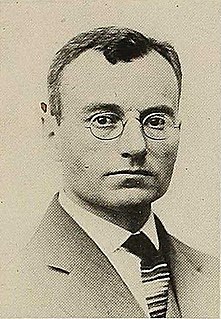A Quote by Anais Nin
I like extravagance. Letters which give the postman a stiff back to carry, books which overflow from their covers, sexuality which bursts the thermometers.
Related Quotes
Olive's private view is that life depends on what she thinks of as "big bursts" and "little bursts." Big bursts are things like marriage or children, intimacies that keep you afloat, but these big bursts hold dangerous, unseen currents. Which is why you need the little bursts as well: a friendly clerk at Bradlee's, let's say, or the waitress at Dunkin' Donuts who knows how you like your coffee. Tricky business, really.
In actual fact. The manifold sexualities - those which appear with the different ages (sexualities of the infant or the child), those which become fixated on particular tastes or practices (the sexuality of the invert, the gerontophile, the fetishist), those which, in a diffuse manner, invest relationships (the sexuality of doctor and patient, teacher and student, psychiatrist and mental patient), those which haunt spaces (the sexuality of the home, the school, the prison)- all form the correlate of exact procedures of power.
Correct is to recognize what diseases are and whence they come; which are long and which are short; which are mortal and which are not; which are in the process of changing into others; which are increasing and which are diminishing; which are major and which are minor; to treat the diseases that can be treated, but to recognize the ones that cannot be, and to know why they cannot be; by treating patients with the former, to give them the benefit of treatment as far as it is possible.
The whole of life has become an institution, a madhouse in which duties are to be fulfilled not love; in which you have to behave, not be spontaneous; in which a pattern has to be followed, not the overflow of life and energy. That's why the mind thinks and decides everything, because there is danger.
Solid scriptural theology should be valued in the church. Books in which Scripture is reverently regarded as the only rule of faith and practice-- books in which Christ and the Holy Ghost have their rightful office-- books in which justification, and sanctification, and regeneration, and faith, and grace, and holiness are clearly, distinctly, and accurately delineated and exhibited, these are the only books which do real good. Few things need reviving more than a taste for such books as these among readers.
Freed from the sublimated form which was the very token of its irreconcilable dreams - a form which is the style, the language in which the story is told - sexuality turns into a vehicle for the bestsellers of oppression. ... This society turns everything it touches into a potential source of progress and of exploitation, of drudgery and satisfaction, of freedom and of oppression. Sexuality is no exception.
Identity would seem to be the garment with which one covers the nakedness of the self: in which case, it is best that the garment be loose, a little like the robes of the desert, through which one's nakedness can always be felt, and, sometimes, discerned. This trust in one's nakedness is all that gives one the power to change one's robes.
Confusion conditions activity, which conditions consciousness, which conditions embodied personality, which conditions sensory experiences, which conditions impact, which conditions mood, which conditions craving, which conditions clinging, which conditions becoming, which conditions birth, which conditions aging and death.






































